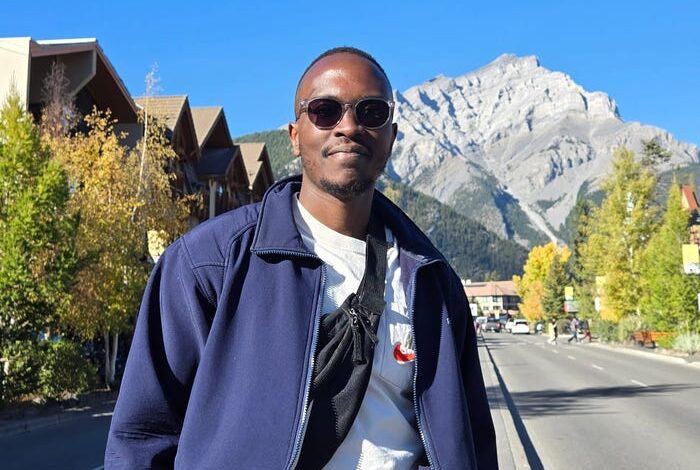Kenyan Immigrant Shares Journey of Name Change for Acceptance

Mwangi Wanjau, a Kenyan immigrant, navigated the complexities of identity in Canada by changing his name on job applications. When he moved from Kenya to Canada in 2016, he adopted the name “James” to improve his job prospects. After several years, Wanjau decided to reclaim his birth name, finding empowerment in embracing his true identity.
Wanjau was born and raised in Nairobi, where his name, Mwangi, is common among the Kikuyu tribe. The transition to Canada brought challenges. At age 19, Wanjau often felt like an outsider due to his name, which frequently required repetition and caused difficulty in pronunciation. In an effort to blend in, he began introducing himself as “James,” a name he shares with his grandfather, and used it on his résumé to enhance his employability.
The shift to “James” initially eased social interactions. Wanjau noticed that colleagues remembered him better and found it simpler to pronounce the anglicized version of his name. This adaptation was not merely a name change; it was a survival tactic in a new cultural landscape. He recalled, “People seemed to remember me when I used ‘James.’”
After graduating with a degree in mathematics, Wanjau secured jobs in customer service and sales, continuing to use the name “James.” He felt pressure to soften his accent and adopt Canadian slang, believing that it would help others perceive him as educated and competent. This facade, however, took a toll on his sense of self.
In late 2023, Wanjau began applying for more professional roles, reverting to his birth name, Mwangi, on applications. After five months of limited success, a suggestion from his barber to revert to “James” led him to rethink his strategy. He had encountered stories about discrimination against individuals with African-sounding names and wondered if he was experiencing similar biases in Canada.
Changing his résumé to “James M. Wanjau” yielded immediate results. Wanjau received more interview invitations and felt that recruiters found his name easier to remember. In May 2024, he secured a position as an admissions and awards coordinator at the university he attended.
Despite this success, Wanjau grappled with a dual identity. His official workplace documentation reflected “Mwangi,” while he introduced himself as “James.” This dissonance prompted him to reflect on his sense of belonging within the organization. “I realized I didn’t feel like I could be myself at work,” he noted.
In Spring 2025, Wanjau made a decisive move to re-embrace his birth name. He started introducing himself as Mwangi more frequently, even in situations where he had to clarify the pronunciation. This journey was not without its difficulties; he acknowledged that some people still struggled with his name.
The decision to reclaim his identity coincided with a broader movement towards diversity and inclusion in workplaces. Wanjau recognized that change must start from within, stating, “Bias in the system won’t change unless we stop hiding.” He underscored the importance of authenticity, emphasizing that success should not require the sacrifice of one’s identity.
Wanjau’s experience serves as a compelling narrative about the intersection of cultural identity and professional life. It highlights the challenges faced by immigrants in adapting to new environments while striving to maintain their heritage. His story resonates deeply in a world increasingly focused on inclusivity, signaling that embracing one’s true self can be a powerful act of defiance against societal biases.






